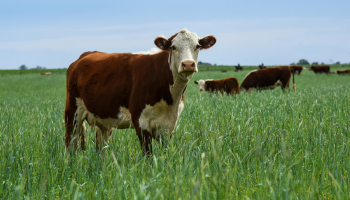Banks Compromise NetZero Goals with Livestock Financing
Banks' lending to livestock resulted in 63.1 million metric tons of CO2e
- |
- Written by Banking Exchange staff

Financing for industrial livestock undermines US banks’ climate commitments, according to a report made in collaboration between Profundo and Friends of Earth.
The new report found that even though meat, dairy and feed corporations only represent 0.25% of banks’ portfolios, they result in 11% of the greenhouse gas emissions linked to their financing.
This financing presents an outsized impediment to banks meeting their climate commitments.
The report also calculated that 58 banks contributed $134 billion in lending and underwriting to meat, dairy, animal feed, food processing and agri-commodity corporations between 2016 and 2023.
The lending and underwriting provided by banks financed and facilitated 63.1 million metric tons of carbon dioxide-equivalent emissions (CO2e) in 2022, which is roughly equivalent to the amount of COe emitted by 14 million cars driven in one year.
More than half of the financing examined in the report comes from only three major banks: Bank of America, Citigroup and JPMorgan Chase. The trio’s lending and underwriting enabled 24.4 million metric tons of CO2e emissions.
Ward Warmerdam, senior financial researcher at Profundo, said: “Our research finds that by eliminating their financing of high-emitting corporations involved in meat, dairy, and feed production — a relatively small change in how they allocate their capital — these big banks can affect a sharp emissions reduction.”
Following the findings, the report recommended that banks halt all new financing that enables the expansion of industrial livestock production.
Banks should also require meat, dairy and feed clients to disclose third-party 1.5°C targets and action plans that align with the Intergovernmental Panel on Climate Change (IPCC) or an equivalent science-based sectoral pathway, according to the report.
Tagged under Management, Feature, Feature3, Net Zero, Carbon Emissions, Paris Climate Accord, Climate Crisis,













